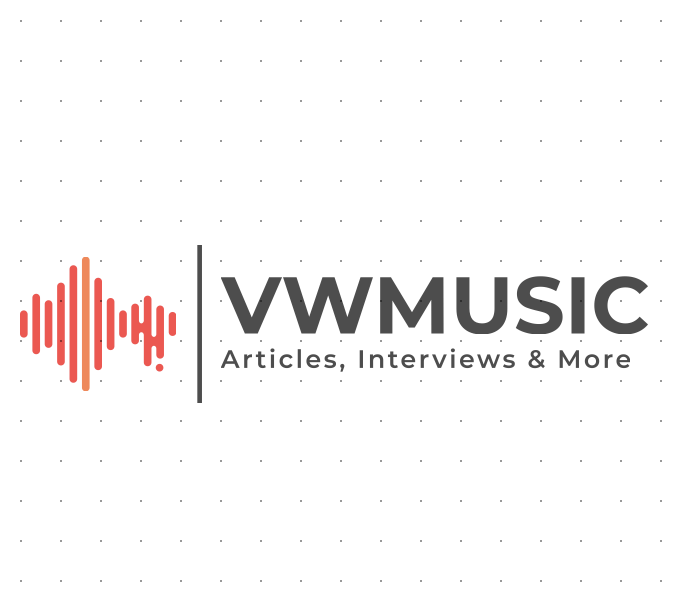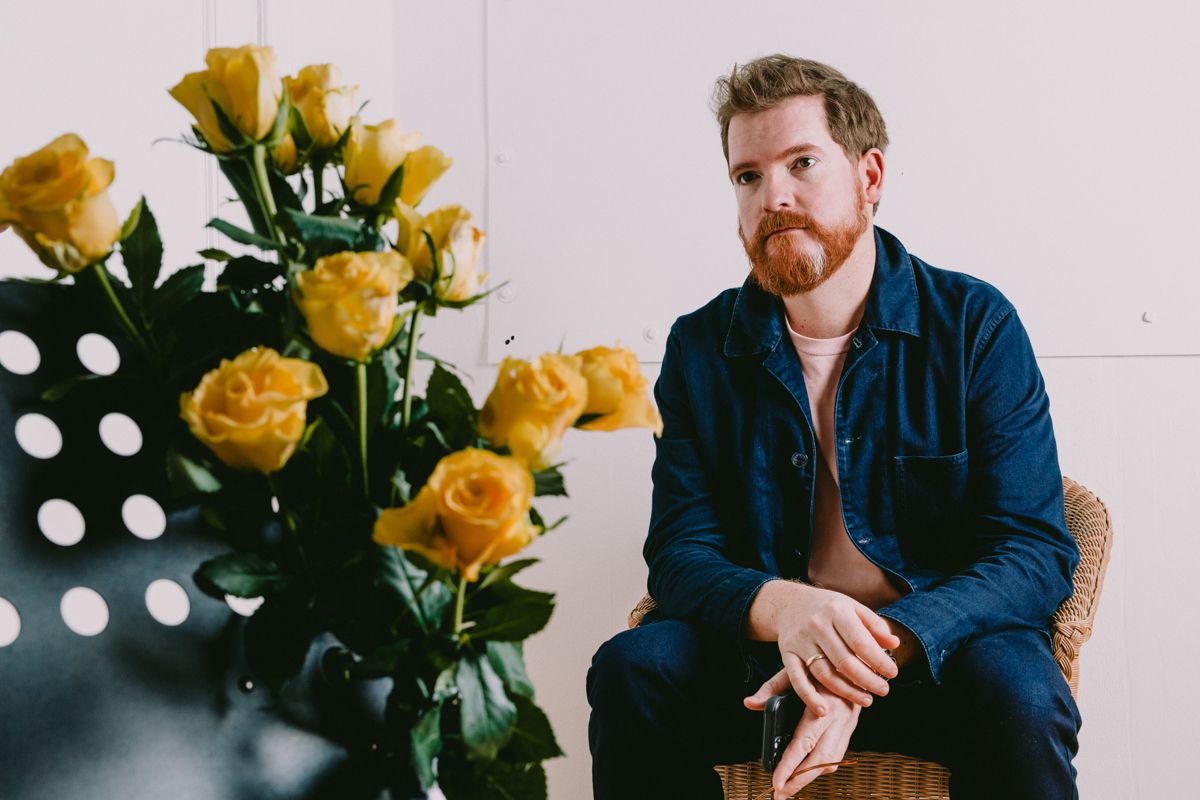
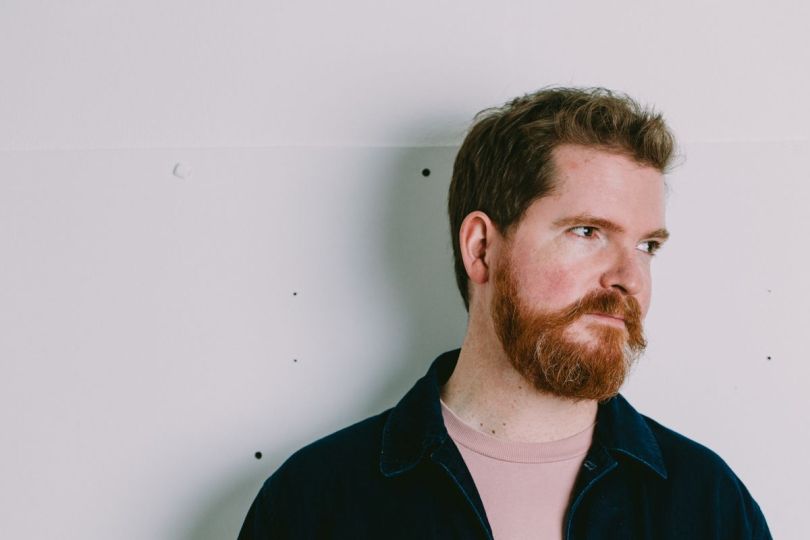
Against the backdrop of a universally difficult 2020, songwriter and guitarist John Smith found himself facing personal and unrelenting change. In the spring of 2020, Smith and his wife lost a pregnancy, and his mother was diagnosed with cancer. With his touring schedule of two hundred days a year on the road suddenly on indefinite hiatus, for the first time in over a decade, John was home.
The Fray is Smith’s sixth studio album, and his vulnerability throughout is offered to his listeners, unadorned. “It’s been a hell of a year, but I feel I’ve created my most honest work as a result, and as a necessity. A lot of these songs are about accepting that life is hard, but just holding on and trying to enjoy it anyway.”
Smith was born in Essex and raised on the Devon seaside. Known for his intimate songwriting, his honey-on-gravel voice and pioneering guitar playing, he has spent the last fifteen years touring internationally and has amassed over 40 million streams on Spotify. As a session musician he has played guitar with artists as diverse as Joan Baez, David Gray, Joe Henry, Lianne La Havas and Tom Jones. If you’re interested in checking out John’s new record, hit the link here. Once you’ve done that, dig into this chat with John. Cheers.
Andrew:
John, thank you for taking the time to speak with us. This last year has been rough, right? How are you holding up?
John:
It’s a pleasure! I’m doing alright, thanks. My family and I went through the mill along with almost everyone else. All you can do is roll with the punches. We moved to the hills; I made a record, my wife set up a new business.
Andrew:
Tell us about your backstory. What was your musical gateway, so to speak?
John:
I grew up in a musical house. My dad has a vast record collection, so I was exposed to the Blues and Beethoven from a young age. I was winning piano competitions when I was seven; then, I started on the drums. When I hit eleven, I got my first guitar. That was it for me. I locked myself away and listened to Clapton, Hendrix, Muddy Waters all day long. But then, when I was sixteen, I heard Nick Drake, Bert Jansch, and John Renbourn, Joni Mitchell… their music changed my life.
Andrew:
As an artist, who are some of your earliest and most important influences? How did you develop your sound and style as a guitarist?
John:
It was American blues and British Folk music early on. My dad made sure I always listened to proper guitarists like Ry Cooder. I knew how a guitar should sound before I ever picked one up. Whenever I play, I think, how can it sound good? Does this sound like music to my ears? And then, there is just practice. I devoted myself to the instrument, but it was no hardship: it felt great. I was in love. At a certain point, in my early twenties, I had the ability to combine fingerpicking, percussive playing, and lyrical phrasing into something that had started to feel like my own style.
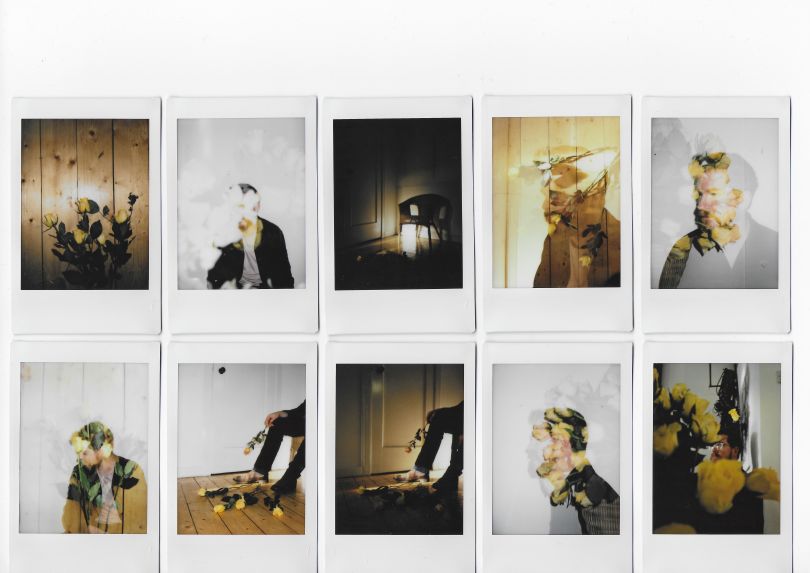
Andrew:
Let’s dig in and talk about your new album, The Fray. What was the inspiration for the album? Tell us about the recording process. What are your hopes for it? Where can we get the album, and what formats will it be on?
John:
I could have rolled on another year before writing songs, as I like to take a little rest between album campaigns, but this time I had no choice. The pandemic hit, we lost a pregnancy, and my mum got really sick. I had to process everything that was happening, which usually means writing songs. As soon as I got out of the way of myself, if you know what I mean, the songs started falling onto the paper.
I had been interested in making a record at Real World for years, having worked there with Joe Henry back in 2013. I also wanted to have some of my favorite musicians involved, despite them living in the States. When the recording session was underway, my collaborators sent their audio, and we put them in the mix. We re-amped Bill Frisell’s guitar to give it the same room reverb as mine. We recorded Lisa Hannigan via a Zoom link. The whole thing felt real and live, despite the distances involved.
I always have two hopes in mind when I make records: first of all, I want it to be the best record that I can produce. Then, I hope the album will reach many new people and make enough dough to fund the next go-round. If these can happen, I’ll be a happy man.
And yes, it will be released on vinyl. It has to be! I imagine you’ll find it in the usual places.
Andrew:
You’ve had the opportunity to play with the likes of Joan Baez, David Gray, Tom Jones, and more. What has it been like having the opportunity to work with so many amazing artists?
John:
It’s a privilege to be both a sideman and a frontman. I’ve been able to wear different hats. I stand behind someone like David Gray and watch what he does, see how he holds an audience, and I learn from it. Recording guitars for someone like Joan Baez, you learn to pay attention, or you just die in your seat.
There were a few years in which my session work paid the bills, and I enjoyed it all. I’m a good sleeper, and I can hold my drink, so living on the road with bands and crew was good fun.
Andrew:
Circling back around to your new album, you’ve got a really great cast of collaborators here- Jessica Staveley-Taylor, Bill Frisell, The Milk Carton Kids, and more. Tell us about the experience of working with all these incredible artists on your new record.
John:
It was a joy. Jess came down from London and elevated the songs to a new place entirely. Bill sent me a few different takes, all unique and wildly beautiful. Sarah Jarosz nailed it in one take, of course. All of these elements were surprising and beautiful in their own ways.
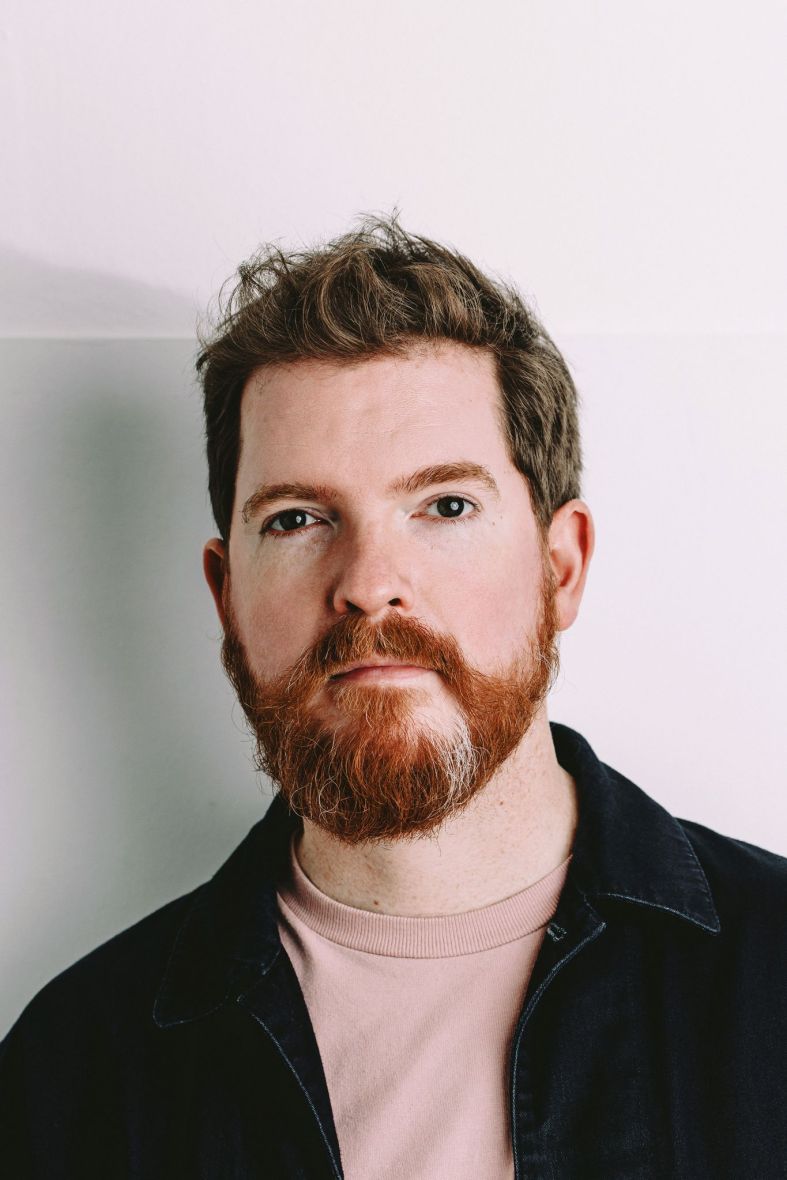
Andrew:
What is the artistic vision for your music going forward? How has it changed since you started? How have you evolved?
John:
There’s no grand vision, really. I just write the best songs I can and play the music that serves them. I feel like I’m a more accomplished songwriter than I was a year ago. If I can keep playing and practicing, then I’ll grow as a musician, which allows me to understand and arrange the songs in a meaningful way. I no longer think about genre or about fitting in. I used to desire acceptance from the mainstream, to sell lots of records, perhaps to be famous enough to play huge theatres. All it got me was writer’s block and frustration. No thanks.
Andrew:
Let’s talk about the production of your new record. I know you recorded this at Real World Studio, which is Peter Gabriel’s place, right? What was that like? Is your music self-produced, or do you enlist the help of outside voices?
John:
Real World is a peaceful, beautiful studio with the kind of setup that feels like gear Valhalla. I went in with my friend Sam Lakeman, who has produced my previous two records, and we shared the production. I haven’t produced my own music since Great Lakes in 2013, so this felt really good. He and I have a natural rhythm, and we’re close, so we can argue the toss and move forward very quickly.
The workflow was instinctive. There was an overarching theme of quick decisions and commitment to first takes, which kept things spontaneous. We emerged with something different from what was planned. When Jason Rebello came in and played his piano parts, we knew the record was moving in a new and exciting direction, so we went with it.
Everything has to serve the songs. If there’s anything else happening in the studio, I’m not interested.
Andrew:
Tell us about your songwriting process. Do your lyrics come from a personal place, or are you merely telling stories, so to speak?
John:
In the past, I’ve been more interested in mythic storytelling, alongside my own personal experience. I love a good story. However, this new album doesn’t feature any characters or anything remotely fictitious. There’s one line in “The Fray” where I reference getting to Radio City, which is an exaggeration of my own career, but it’s relevant to my own experience. I mean, I’ve played there, but as a sideman. At least I know what the dressing room smells like. They had good catering.
It might seem ridiculous, but I wrote a couple of these songs instead of having a breakdown. They helped me through a real bastard of a year.
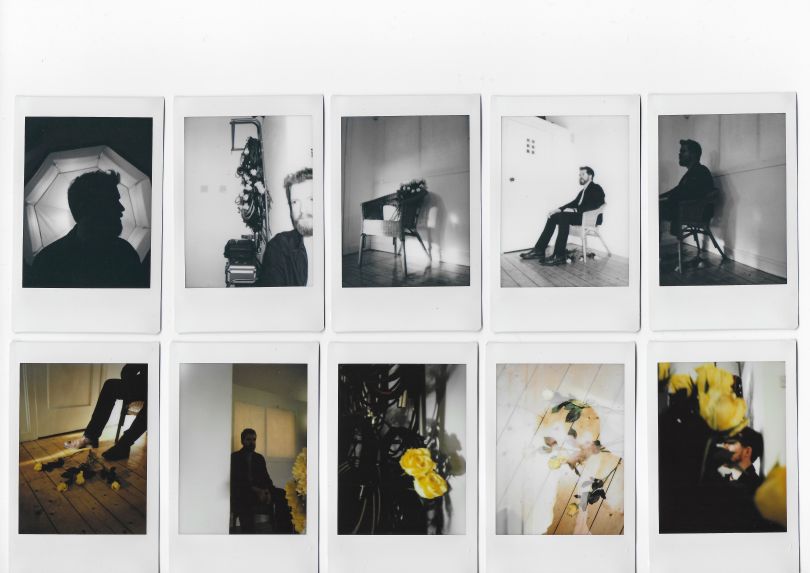
Andrew:
Touring is usually a huge part of a working band’s proverbial machine, but as we know, COVID has disallowed it. What do you miss most about touring?
John:
Aside from the adrenaline, late nights, early starts, surprise encounters, writing spreadsheets in airports, lack of sleep, lunchtime naps in gas station car parks, and access to regular Thai food, I miss people. Being with them, singing for them, talking to them.
Andrew:
On the subject of touring, indie venues were in trouble before COVID, and they definitely are now. I’ve seen and heard about places shutting down for good all over. What do you think the post-COVID landscape is going to be like out there?
John:
I imagine it will be tough, but we’ll always find a way to congregate and listen to music. People need it.
Andrew:
In a world dominated by big business and social media, can artists truly get ahead? How do we keep the playing field level so that everyone has a chance to succeed?
John:
Remember that music itself, as a pure form of expression, does not follow the rules of money or popularity. If you’re making music, why should you follow those rules? There’s another dimension at work here, which is a basic desire to be rich and famous. It seems more apparent than ever because we are so relentlessly exposed to the artifice of fame. If you’re not careful, you’ll find yourself beholden to very different forces than the music itself. I’ve found that pursuing music is infinitely more rewarding than hunting for money or popularity.
I do know that if you learn your instrument and sing your guts out, at least a few people will become interested, and maybe they’ll buy a record. It all springs from there, in my line of work.
Andrew:
Are you into records? Tapes? CDs? Digital? Where do you like to shop for music?
John:
I buy vinyl, and I subscribe to a couple of streaming services. My favorite record shop is Raves From The Grave in Frome, UK. They keep a lot of Jazz in stock.
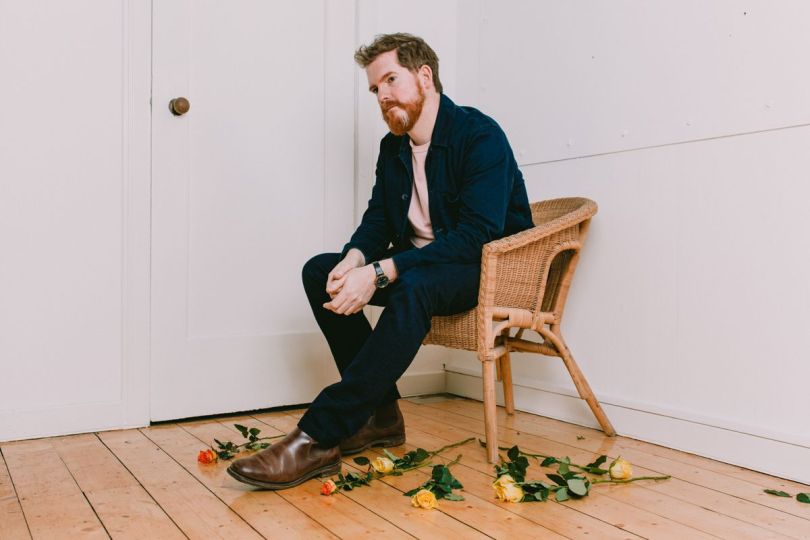
Andrew:
What are a few albums that mean the most to you, and why?
John:
Astral Weeks by Van Morrison – this is the only album that has struck me deeply at very different stages of my life. In that way, it’s become a touchstone. I look to that record when I need a dose of beauty or imagination.
Bert and John by Bert Jansch and John Renbourn – I think this one of the greatest guitar records ever made. They cut it in Bert’s living room, in St John’s Wood, in the summer of ’66. They were playing guitar together all day and all night. It’s music to get lost in.
The Jimmy Giuffre 3 (eponymous) – I listened to this intensively when I began to study harmony. The interplay between the three and Jim Hall’s phrasing has had a lasting impact on what I hear as being good and not-so-good…
Andrew:
Who are some of your favorite artists? Ones that mean the most to you.
John:
Tom Waits, Joni Mitchell, Nick Drake, Dave Brubeck, Bill Frisell, Kelly Joe Phelps, Bach, Sonny Red. Lately, I’ve been hooked on Justin Townes Earle and Tedeschi Trucks Band. Her voice! Wow.
Andrew:
Last question. What advice would you have for young artists just starting? How do they stay afloat in a world that seems to be so abhorrent to creatives?
John:
I don’t see it as abhorrent. There’s beauty everywhere, and if you keep your chin up, you’ll see it. Write some music and play it often. Then you write some more. Expect to be poor for a long time. Plan for the worst but let the hope of good things get you out of bed every day. Don’t stand for any nonsense. Surround yourself with people who know what they’re doing. Keep going.
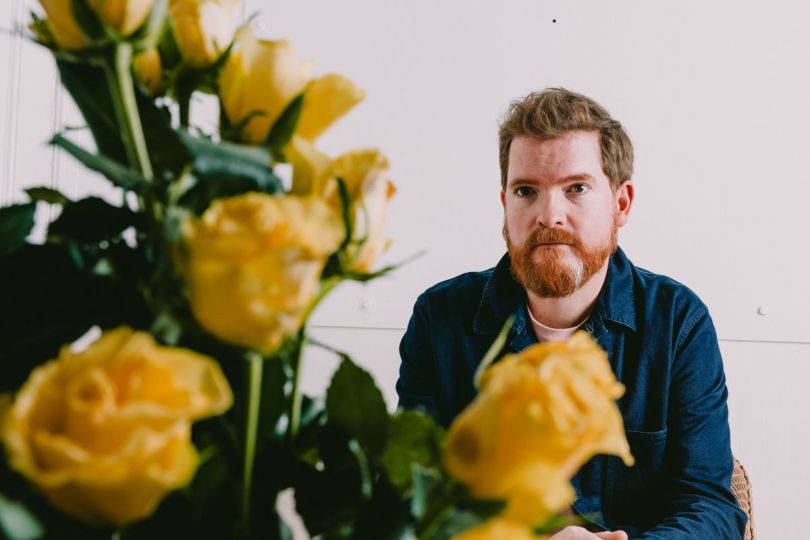
Interested in learning more about the work of John Smith? Check out the link below:
Dig this interview? Check out the full archives of Vinyl Writer Interviews, by Andrew Daly, here: www.vinylwritermusic.com/interview
